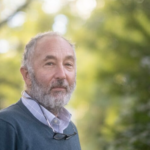Legalisation of Cannabis Moves Closer

The campaign to legalise cannabis for medical purposes has taken an unexpected leap forward with support from the prime minister, and a clinical trial to go ahead in NSW.
Prime Minister Tony Abbott wrote a letter to well known talkback radio host Alan Jones earlier this month, announcing that he supported the use of cannabis for pain relief, much in the same way as he supported the use of opiates for medical purposes.
He said that if the drug had been proven safe overseas, he didn’t see any need for further testing in Australia.
NSW Premier Mike Baird has also signalled his support, approving a clinical trial of medical cannabis in the state, the results of which are due to be reported back at the end of the year.
The developments come on the heels of much recent debate about the issues surrounding the decriminalisation of cannabis for medicinal use, and a tireless campaign by those who use it.
What are the benefits of using marijuana for medical purposes?
There are a number of campaigners who have benefited from using cannabis in a medical capacity.
These include NSW man Dan Haslam, who suffers from terminal cancer and uses marijuana to get relief from the nausea and other side effects of chemotherapy.
Another campaigner for the legalisation of medical cannabis is the mother of severe epilepsy sufferer Tara O’Connell.
Mrs O’Connell’s daughter has been using cannabis to treat her seizures, and since she has been on the treatment, she has gone from having 65 seizures a day to none at all.
The need for legal reform has been highlighted by the arrest of Tara O’Connell’s marijuana supplier in May this year.
Nimbin resident Tony Bower, director of Mullaways Medical Cannabis, supplies hundreds of parents with a liquid form of cannabis, which is anecdotally shown to alleviate seizures in children suffering from severe epilepsy and other neurological conditions, as well as help terminal illness and chronic pain sufferers.
Mr Bower claims to have developed a tincture derived from cannabis plants that is almost entirely free of the psychotropic chemicals found in marijuana.
The tincture has been sent for testing by NSW Police and confirmed to be free of any illegal chemicals, but the plants that are cultivated to produce the tincture are illegal.
This has led to criminal charges being laid and Mr Bower facing the possibility of a prison sentence for cannabis cultivation, and the cessation of production will in turn affect his ability to provide the tincture for his patients.
How will the clinical trial work?
The clinical trial to take place in NSW over the next few months is intended to be the first step towards formalising the use of cannabis for medicinal purposes.
The trial will seek to set up a register of terminally ill patients and their carers.
Currently, NSW Police can choose at their own discretion whether or not to charge people they find using cannabis for allegedly medical purposes.
Recommendations for future changes have included making amendments to the Drug Misuse and Trafficking Act to ensure that people using cannabis for legitimate medical purposes have a complete defence against any criminal charges they might incur.
For cannabis to be formally legalised, there would need to be some resolution around the issue of supply and manufacture, an issue that is expected to be a hurdle that delays the process of legalisation.
The news of the trial has been met with a mixed response. Medical cannabis campaigners have welcomed it, but others have suggested that it is not a big enough step forward and the process could still take too long to help people who are currently suffering from terminal illnesses.
How is the legalisation of cannabis progressing in other states?
In Tasmania, there has been a recent shift by the state government which previously rejected a bid for a clinical trial of medicinal cannabis in July.
Earlier this month, Health Minister Michael Ferguson announced his support of a clinical trial into the use of cannabis for medicinal purposes, provided there was an evidence-based approach and it was in line with regulatory frameworks.
The legalisation of medical cannabis has also moved forward in Victoria with opposition leader Daniel Andrews stating that he will support legalisation if he is elected.
Under his suggested changes, the use of medical cannabis would be made legal for those with a terminal illness or a life threatening medical condition like epilepsy.
It’s use would be strictly regulated under the new laws, and would involve a type of liquid marijuana rather than smoking the drug.
Mr Andrews believes that he could have a proposed bill ready for parliament in 2015, speeding up the legalisation process which is expected to be lengthy in NSW.
The progress towards legalisation of cannabis for medical use in NSW and other states looks positive, although there are still a number of legal issues that need to be addressed.
It looks likely that the legalisation of cannabis for medical use in certain circumstances will happen at some point in the foreseeable future, although it is likely to be strictly regulated.






